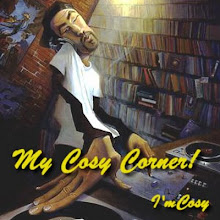By Professor Richard Wiseman, University of Hertfordshire
Why do some people get all the luck while others never get the breaks they deserve?
A psychologist says he has discovered the answer.
Hundreds of extraordinary men and women volunteered for my research and over the years, I have interviewed them, monitored their lives and had them take part in experiments.
The results reveal that although these people have almost no insight into the causes of their luck, their thoughts and behavior are responsible for much of their good and bad fortune. Take the case of seemingly chance opportunities. Lucky people consistently encounter such opportunities, whereas unlucky people do not.
I carried out a simple experiment to discover whether this was due to differences in their ability to spot such opportunities. I gave both lucky and unlucky people a newspaper, and asked them to look through it and tell me how many photographs were inside. I had secretly placed a large message halfway through the newspaper saying: 'Tell the experimenter you have seen this and win $50.'
This message took up half of the page and was written in type that was more than two inches high. It was staring everyone straight in the face, but the unlucky people tended to miss it and the lucky people tended to spot it.
Unlucky people are generally more tense than lucky people, and this anxiety disrupts their ability to notice the unexpected.
As a result, they miss opportunities because they are too focused on looking for something else. They go to parties' intent on finding their perfect partner and so miss opportunities to make good friends. They look through newspapers determined to find certain types of job advertisements and miss other types of jobs. The lucky ones make the best of what they have and find ways to make it better. Unlucky ones tend to find an easy way out and fail in life.
Lucky people are more relaxed and open, and therefore see what is there rather than just what they are looking for. My research eventually revealed that lucky people generate good fortune via four principles. They are skilled at creating and noticing chance opportunities, make lucky decisions by listening to their intuition, create self-fulfilling prophesies via positive expectations, and adopt a resilient attitude that transforms bad luck into good.
Towards the end of the work, I wondered whether these principles could be used to create good luck. I asked a group of volunteers to spend a month carrying out exercises designed to help them think and behave like a lucky person.
Dramatic results! These exercises helped them spot chance opportunities, listen to their intuition, expect to be lucky, and be more resilient to bad luck. One month later, the volunteers returned and described what had happened. The results were dramatic: 80% of people were now happier, more satisfied with their lives and, perhaps most important of all, luckier.
The lucky people had become even luckier and the unlucky had become lucky.
Finally, I had found the elusive 'luck factor'.
Here are Professor Wiseman's four top tips for becoming lucky:
1) Listen to your gut instincts - they are normally right
2) Be open to new experiences and find ways to make things work better. Family and loved ones for a start.
3) Spend a few moments each day remembering things that went well
4) Visualize yourself being lucky before an important meeting or telephone call.
Have a Lucky day and work for it.
sent by Prisicilla


